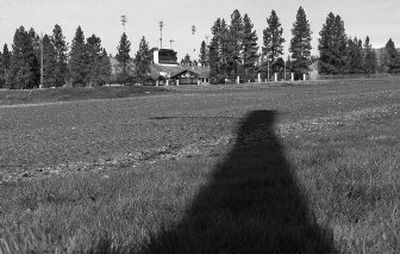Broader Albi use proposed

A proposed land swap between the city of Spokane and Fairmount Memorial Park could set the stage for a long-awaited redevelopment and expansion of recreational facilities at Joe Albi Stadium in northwest Spokane.
Neighborhood leaders have been pushing city officials to include passive and all-ages recreational facilities at the Albi complex in exchange for neighborhood support of a new softball complex for organized league and tournament play.
The 14 acres to be obtained in the swap would be used in part as a developed trail head for a pathway leading to Riverside State Park to the west.
“I think they are listening to us,” said Karen Bell, a neighborhood advocate of facilities for broader public use.
“We may not be getting exactly what we want, but this is a big piece of the puzzle,” she said. The cemetery land “has so much potential for outdoor recreation.”
Neighborhood support may be critical for any future effort to win voter approval for other park improvements, including a new water park swimming facility, Bell and others said. The debate over building a softball complex at Albi dates back more than eight years.
The public will get a chance to weigh in on the softball complex when it comes up for a conditional-use permit in the next several months. The permit requires a public hearing before the city hearing examiner, who could grant the permit with conditions on the development.
In addition, the neighborhood is expecting that a public meeting will be held once the current plan is finalized so residents can comment on it, Bell said.
Councilman Rob Crow said a softball complex would generate revenue and become self-supporting. Nearly $4 million is available to build the project.
Use of the money for a softball facility at Albi was approved by voters overwhelmingly in 1999 in conjunction with the sale of old sewage lagoon property to Wal-Mart on North Holland Road.
Larger softball fields with fences of at least 300 feet have long been sought by the Spokane Amateur Softball Association so it can draw regional and national tournaments to Spokane. The project would take up about 30 acres and could include four to six fields.
However, neighbors have expressed concerns about alcohol sales in the stands, traffic from tournament crowds, light and noise.
Fuzzy Buckenberger of the Spokane Amateur Softball Association said the city currently has about 25 softball fields that are used by as many as 800 teams countywide. By building more softball fields, some of the existing fields could be converted for youth baseball, which also has a need for additional fields, Buckenberger said.
He said the softball complex is going to attract so much play that it will be busy “seven days a week,” he said.
The land trade with Fairmount would involve the city granting a five-acre strip of property on the west side of Albi stadium in exchange for a larger parcel to the north. The cemetery would use the land for a new maintenance area.
The Albi complex includes both park and city land – a total of 130 acres.
In addition to the land swap, the cemetery operator has asked for access across Albi grounds for vehicles exiting the graveyard on Memorial Day, and possibly other days by request.
Jim Albi, a second cousin of the stadium’s namesake, the late Joe Albi, said he is concerned that loss of the strip of land to the cemetery would reduce parking for larger events. Albi has been fighting to save the stadium ever since former Mayor Jim West proposed selling it and converting the property to home sites.
West’s proposal was killed by the City Council in 2005.
Park Board member Steve McNutt suggested that undeveloped land owned by the cemetery be sought through the county’s Conservation Futures acquisition program.
Bell said additional land below the bluff overlooking the river and owned by Fairmount could be purchased through Conservation Futures.
Crow said the softball fields could be part of the city’s move to clean up the Spokane River by using treated wastewater for irrigation. The complex is close enough to the sewer plant to allow installation of so-called “purple pipe,” which could carry treated wastewater to the softball park for irrigation.
A consultant is currently studying traffic issues. A preliminary report indicated that the softball complex would generate about 150 cars during its peak afternoon hour of operation.
The development may not trigger requirements for traffic improvements at Wellesley Avenue and Assembly Street or at what neighbors call “malfunction junction” at Francis Avenue and Assembly Street.
Bell said a traffic circle is one possibility for Francis and Assembly.
City engineers said Albi’s grounds also need an upgraded water supply for fire protection.
Albi improvements eventually include a new indoor aquatics center as recommended by a citizen committee in 2005. A BMX bike course and skate park also are envisioned for the Albi grounds.
A voter information sheet distributed prior to the 1999 vote on building new facilities at Albi also called for the possibility of adding a skate park, Roller Blade facility, field hockey area, baseball fields, volleyball courts, a batting cage, restrooms and an office.
Crow also said he believes that Albi, built in 1950, should be downsized eventually because its current configuration with 28,000 seats is too large for sporting events now held there, primarily high school football. He is recommending a renovation that would leave 6,000 to 8,000 seats.
“Its size dwarfs events we would want to hold there,” he said.
Bell said she agrees that the stadium’s long-term future must be addressed in coming years.